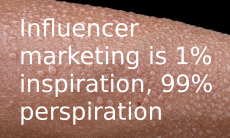The surge behind the exploding Bernie phenomenon is fascinating for many reasons. It is certainly an indication of how divergent our society and politics have become, and this could even intensify in the future. It also shows the political potential of finding and concentrating on the most pronounced issues that frustrate younger people so much. Interestingly, from a branding perspective, there are some revealing lessons from this unexpected success of the Bernie Sanders brand.
In branding, it is critical to first identify the most passionate “sweet spots” of various target segments of any market, including the voting population. The Millennials now represent the largest voting bloc in the U.S., so they cannot be ignored – these 86 million young people will represent 40% of the electorate in 2020. They are especially emotional about certain issues, which Bernie has highlighted and credibly focused on in very simplistic, yet effective ways. For example:
- The dominant impact from PAC’s and lobbyists, with their huge contributions
- The extraordinary power (and greed?) of Wall Street and bankers
- The dangerous “time bomb” of student debt and outrageous college tuition costs
- Income inequality; with the rich getting richer
- The pervasive harm from climate change and global warming
The results of the primaries to date confirm how this infectious passion of the Millennials has galvanized positive action for Bernie. In Iowa, 63% of the 35 year and under crowd voted for Bernie, compared to only 27% for Hillary. Bernie’s attraction to younger people was similar in the New Hampshire primaries – 83% of the 18-29 year-olds, versus only 16% for Hillary. Surveys on the reasons for this strong preference among Millennials mirror typical values of this younger generation – trust and integrity. They said “trustfulness” and “caring about people” were critical for their vote, and that honesty and empathy were more important than experience and electability. In general, among voters who cared most about honesty and trustfulness, 91% chose Bernie and only 5% voted for Hillary.
There are other, brand-related reasons why Bernie has caught fire with his targeted Millennials. While Bernie Sanders is a member of Congress, his value proposition, unpolished demeanor, and overall brand image is rather “anti-establishment” and more typical of an “outsider.” As demonstrated by the Millennials, Bernie has successfully leveraged widespread concerns and the lack of trust for the establishment. According to the latest 2015 Edelman Trust barometer, the general population in the U.S. has very low trust levels (and the trust level among Millennials is even lower):
- Government is the least trusted institution at 41%
- Financial Services is the least trusted industry – 51%
These evolving values and attitudes of Millennials should not be viewed as an aberration or a phenomenon that is temporary. Yes, some maturing is inevitable, once they experience the realities of life (e.g. marriage, parenting, need for more stable employment, etc.). But this first digital generation has already begun to re-shape the philosophical underpinnings of corporations (e.g. social responsibility now as important as shareholder wealth) and purchasing behavior (less responsive to advertising, more dependent on credible advice from peers and experts). With Bernie’s continual outrage, they are also more aware of the dangers of the disproportionate influence of the top 1% wealthy in politics. In short, Millennials want fresh, relevant ideas that they don’t see from PAC advertising or more “establishment” candidates (e.g. Hillary), but do find from Bernie.
The raw appeal of Bernie for these trend-setting Millennials evokes many core principles of good branding, but there are also some inherent risks behind his branding effort:
- People and media love to stereotype other people and brands, using over-simplified, generalized names to categorize them. Bernie admits to being a “Democratic Socialist”, but the term “Socialist” implies a conflicting and high risk message to many Americans, including Millennials, with their strong desire for entrepreneurship and belief in free markets.
- A major frustration of Millennials for many established brands (see my prior blog on brand authenticity) is their over-promise or an inability to deliver on such promises. While many like Bernie’s promises because they relate to acute problems emotionally felt by Millennials, there is a legitimate concern that he could never realistically get such initiatives passed with the current Congress.
- The Bernie Sanders brand is somewhat of a mixed bag regarding his appeal beyond Millennials. While his message is refreshingly clear, focused, and simply stated for many, it probably won’t galvanize broad appeal nor address another huge concern – i.e. the divisive and polarizing trend in our society and Congress. A successful brand must be distinctive and novel, but also be popular with enough people to gain acceptance, unless it is a niche brand, which won’t work for Bernie in this Presidential race.
In many ways, the current presidential campaign is exciting, albeit extraordinary or even outlandish. To be successful, a political candidate is like a brand, where he/she must connect with enough people in a passionate and trustful way. Understanding these basic principles of branding can help one assess the prospects for Bernie and other candidates.




